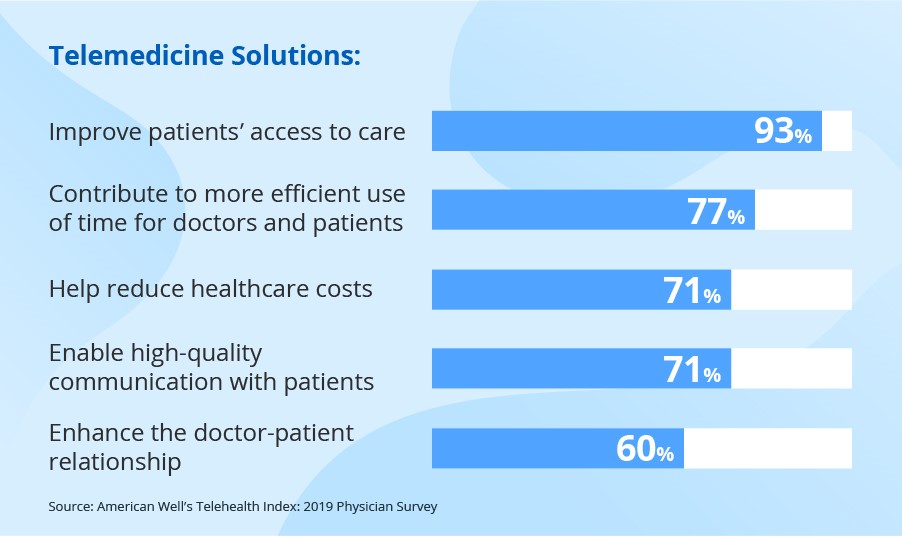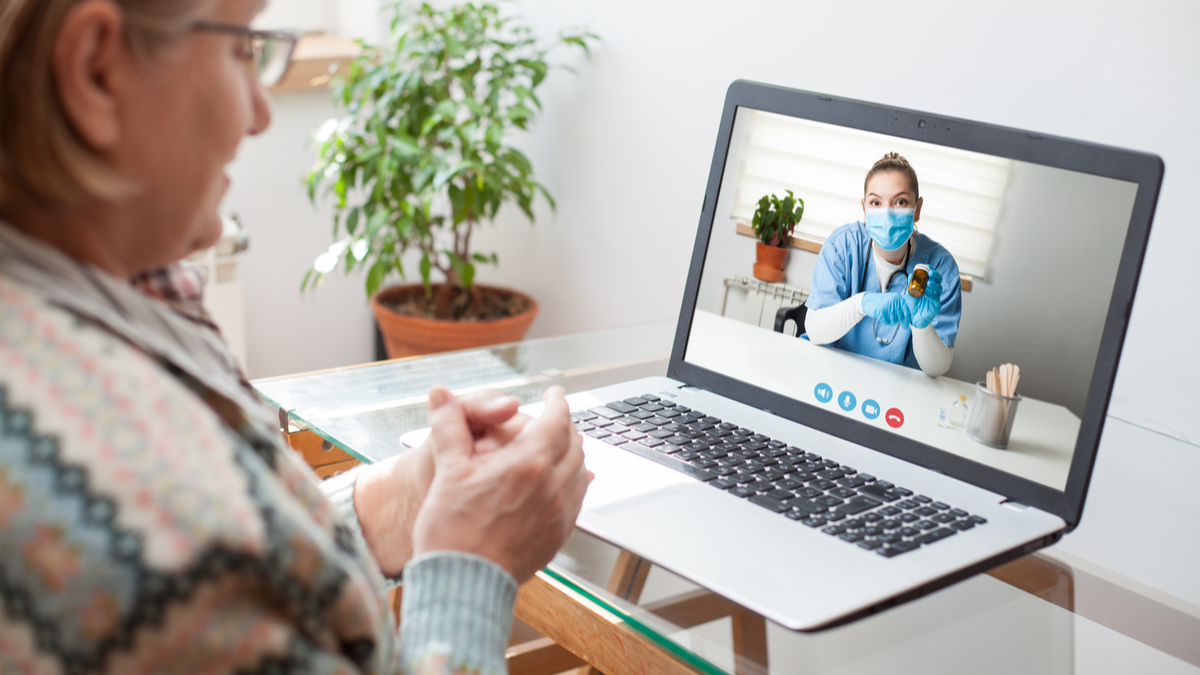
We’re amid the 21st year of the 21st century; fairly advanced than the last decade, right? But then why is feeling under the weather or having queries about your health so stressful today? You typically schedule an appointment with a physician and often require heading to an urgent care clinic, but amid 2021, we are all so terrified to go to the hospitals.
In the event of the global covid-19 pandemic, we have confined our children and elderly at homes, and patients with chronic health conditions are unable to find doctors in case of an emergency. In this time of crisis, telemedicine is playing a critical role in enabling many patients in need.
What is Telemedicine?
Telemedicine is a broad phrase that encompasses all of the ways in which a patient and a doctor can interact via technology which includes phone conversations, video chats, emails, and text messages. Telemedicine uses telecommunications technology to allow health care providers to examine, diagnose, and treat patients from a distance. The methodology has seen a profound evolution in the previous decade, and it is becoming an increasingly significant component of global healthcare infrastructure.

Is Telemedicine here to stay?
Yes, demand for telemedicine services around the world is increasing significantly as more doctors and patients seek for ways to reduce in-person care since the covid-19 is exceedingly infectious. However, with advances in communication technology, our healthcare options are expanding. With telemedicine facilities, one can seek medical attention anytime, anywhere, without leaving the comfort of their homes. This prevents disease propagation, allowing the patients to not worry about getting infected in the waiting room, the doctor’s office, or during the transportation.
The Rise of Telemedicine
Many hospitals have deferred elective surgeries and other in-person treatments but many consultations and checkups can be switched to a virtual environment without compromising quality of healthcare. Patients can conveniently consult doctors without entering a facility, lowering their risk of exposure to covid-19. Countries around the world experienced a great surge in the use of telemedicine. India experienced a 500% rise which 80% people being first time users whereas more developed countries like the USA experienced an over 4000% rise in the last 2 years.
Benefits of Telemedicine
Patients are fast realizing the benefits of telemedicine. They don’t have to worry about jeopardizing their health, waiting for lengthy hours in the hospital’s waiting area or planning transportation to and from the hospital. Telemedicine also provides patients with greater flexibility in terms of where they seek medical care. They are no longer constrained by geographic distances or a lack of transportation. This ensures that every person with access to an internet connection can connect with a healthcare provider during the pandemic and after.

At Dawaai, patients can book appointments and consult with qualified clinicians without leaving their homes. As the covid-19 persists in many regions, more patients are expected to take use of these services in the coming months and years. We may see more patients seeking care closer to home rather than going to their local emergency units. Patients may also be more selective in terms of where they go for medical care, thanks to the flexibility of telemedicine.
Dawaai offers a free doctor’s helpline chat where individuals can have a quick consultation with doctors at any time of the day. Another is a paid video consultation where patients can have a real-life experience with premium video call feature and avail online doctor consultations. At Dawaai, all doctors on board are experienced, qualified and registered with their respective councils, ensuring to offer the best available telemedicine in Pakistan. So if you’re under the weather and need to consult a doctor, or want to discuss your underlying health conditions before taking the covid-19 vaccine, Dawaai is your place to be.
References
MNT, 2020. Telemedicine benefits, disadvantages, and uses. Medical News Today. Available at: https://www.medicalnewstoday.com/articles/telemedicine-benefits#disadvantages.
eVisit, 2020. Telemedicine: Ultimate Guide – Everything You Need to Know. eVisit. Available at: https://evisit.com/resources/what-is-telemedicine/.
Dawaai. (2021). Consult Doctors Online In Pakistan. Dawaai. https://dawaai.pk/doctors-online.
Silver, J. (2018, September 18). The Promise of the Next Generation of Digital Health. Perficient Blogs. https://blogs.perficient.com/2018/09/18/promise-generation-digital-health/.
Cassoobhoy, A. (2020, March 27). What Is Telemedicine? How Does Telehealth Work? WebMD. https://www.webmd.com/lung/how-does-telemedicine-work#1.
Indianexpress, 2020. 500% rise in Healthcare Teleconsultation in India, 80% are first-time users: Report. The Indian Express. Available at: https://indianexpress.com/article/lifestyle/health/500-increase-in-healthcare-teleconsultation-in-india-80-are-first-time-users-report-6483212/.
USNews, 2021. Health care after COVID: The rise of telemedicine | health … Available at: https://www.usnews.com/news/health-news/articles/2021-01-05/health-care-after-covid-the-rise-of-telemedicine.
Vasilevitch, D., 2021. Telehealth statistics – recent trends and forecasts. ScienceSoft footer icon. Available at: https://www.scnsoft.com/blog/telemedicine-statistics.
Modic, P.by E.E., 2020. Telemedicine: Healthcare via social distancing. Today’s Medical Developments. Available at: https://www.todaysmedicaldevelopments.com/article/telemedicine-healthcare-via-social-distancing-covid-19/.
Digi, 2020. 5G and the future of telemedicine and remote surgery. Digi International. Available at: https://www.digi.com/blog/post/5g-and-the-future-of-telemedicine-remote-surgery.
(Digi, 2020)






